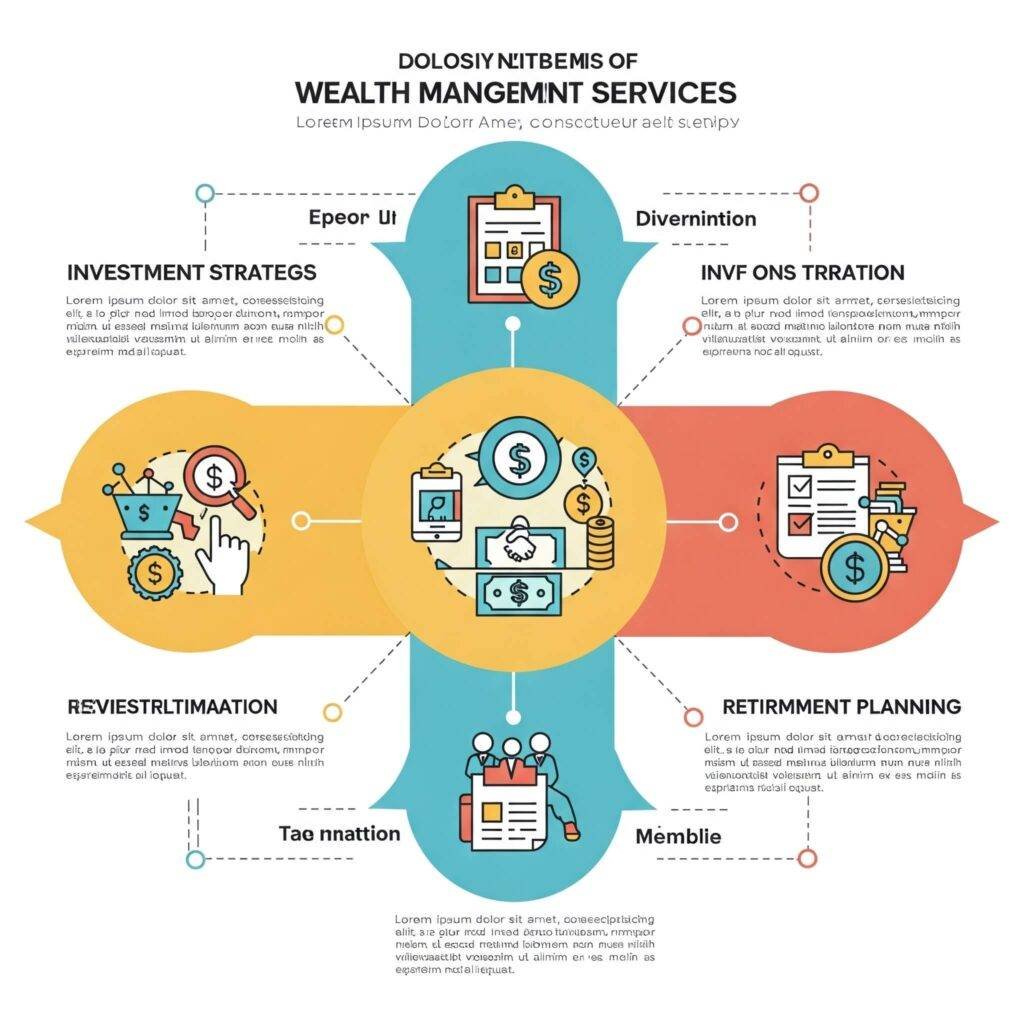What Does a Wealth Manager Do?
Ever wondered, what does a wealth manager do? If you’re dreaming of financial freedom or simply want to make smarter money moves, a wealth manager could be your key to success. These professionals are like financial navigators, guiding you through investments, retirement plans, and tax strategies to grow and protect your wealth. In this guide, we’ll break down their role, why they matter, and how they can help you achieve your financial goals. Let’s dive in!

What Is Wealth Management?
Wealth management is a holistic approach to handling your finances. It goes beyond basic budgeting or stock picking, combining investment advice, tax planning, estate planning, and more to secure your financial future. A wealth manager acts as your personal CFO, tailoring strategies to your unique goals.
Why Hire a Wealth Manager?
Hiring a wealth manager offers several benefits:
- Personalized Financial Plans: They create customized strategies based on your income, goals, and risk tolerance.
- Time Savings: Managing wealth takes time and expertise. A wealth manager handles the heavy lifting.
- Expert Insights: They stay updated on market trends, tax laws, and investment opportunities.
- Peace of Mind: Knowing your finances are in capable hands reduces stress.
Real-World Example: Sarah, a 40-year-old tech entrepreneur, hired a wealth manager to plan her retirement. By diversifying her investments and optimizing her tax strategy, she increased her portfolio by 15% in three years.
Outbound Link: Investopedia’s Guide to Wealth Management
Key Responsibilities of a Wealth Manager
So, what does a wealth manager do day-to-day? Their role is multifaceted, blending strategy, analysis, and client care. Here’s a breakdown:
1. Financial Planning
Wealth managers assess your current financial situation—assets, liabilities, income, and expenses—to create a roadmap for your goals. This might include saving for a home, funding education, or building a retirement nest egg.
2. Investment Management
They design and manage investment portfolios tailored to your risk tolerance and objectives. This involves selecting stocks, bonds, real estate, or alternative assets to maximize returns.
Data Insight: According to a 2023 Morningstar study, professionally managed portfolios outperformed DIY investments by an average of 2% annually.
3. Tax Optimization
Wealth managers work with tax professionals to minimize your tax burden through strategies like tax-loss harvesting or charitable giving.
4. Retirement Planning
They help you estimate how much you’ll need for retirement and create a plan to get there, factoring in Social Security, pensions, and withdrawals.
5. Estate Planning
Wealth managers collaborate with attorneys to ensure your assets are distributed according to your wishes, using tools like trusts or wills.
Outbound Link: Forbes on the Role of Wealth Managers

Who Needs a Wealth Manager?
Not sure if a wealth manager is right for you? Here’s who typically benefits:
- High-Net-Worth Individuals: Those with $1 million+ in assets often need complex strategies.
- Busy Professionals: Doctors, lawyers, or executives who lack time to manage finances.
- Retirees or Pre-Retirees: People planning for or living in retirement.
- Business Owners: Entrepreneurs seeking to protect business and personal wealth.
Actionable Takeaway: If your net worth exceeds $500,000 or you’re juggling multiple financial goals, consult a wealth manager for a free initial assessment.
How to Choose the Right Wealth Manager
Finding the perfect wealth manager requires research. Here’s how to pick one:
- Check Credentials: Look for certifications like Certified Financial Planner (CFP) or Chartered Financial Analyst (CFA).
- Understand Fees: Some charge a percentage of assets (e.g., 1%), while others use flat or hourly fees.
- Ask About Fiduciary Duty: Ensure they’re legally obligated to act in your best interest.
- Evaluate Communication: Choose someone who explains complex ideas clearly and listens to your needs.
Example: John, a retiree, chose a fiduciary wealth manage with a CFP designation. Their transparent fee structure and regular check-ins gave him confidence in his retirement plan.
Outbound Link: Morningstar’s Tips for Choosing a Financial Advisor

Common Misconceptions About Wealth Managers
Let’s debunk some myths about what a wealth managr does:
- Myth 1: “They’re only for the ultra-wealthy.”
Truth: Many serve clients with moderate wealth, starting at $100,000 in assets. - Myth 2: “They guarantee returns.”
Truth: No one can predict markets, but they aim to optimize growth and minimize risks. - Myth 3: “They’re the same as financial advisors.”
Truth: Wealth managers offer broader services, including estate and tax planning.
Conclusion: Is a Wealth Manager Right for You?
So, what does a wealth manage do? They’re your partner in building and protecting wealth, offering tailored strategies to meet your financial dreams. Whether you’re planning for retirement, growing investments, or minimizing taxes, their expertise can make a difference. Ready to take control of your finances? Start by researching certified wealth managers in your area or scheduling a consultation to explore your options.
Actionable Takeaway: Use online tools like the CFP Board’s Find a Planner to locate a trusted professional today.

